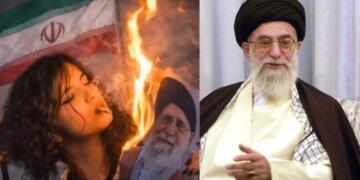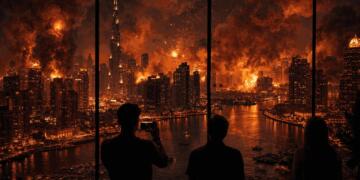External Affairs Minister S Jaishankar’s recent remarks on India’s response to terrorist threats, particularly in light of a potential reoccurrence of events like the 26/11 Mumbai attacks, have stirred a significant discourse. His unambiguous stance reflects India’s resolve to combat terrorism and underscores the complexities in its relationship with neighboring countries, especially Pakistan.
In the wake of escalating terrorist threats, External Affairs Minister S Jaishankar’s recent remarks resonate deeply, invoking the harrowing memory of the 26/11 Mumbai attacks as a pivotal moment in India’s security landscape. Jaishankar’s forthright acknowledgment of this tragedy underscores the urgent need for a robust response to preempt future calamities.
The 26/11 attacks, orchestrated by Pakistan-based militants, stand as a stark reminder of the persistent threat emanating from across India’s borders. Jaishankar unflinchingly confronts Pakistan’s role in sponsoring cross-border terrorism, tracing this malignant phenomenon back to the tumultuous aftermath of India’s independence in 1947. By delving into this historical context, he underscores the enduring nature of the challenge India faces, rooted in decades of proxy warfare and state-sponsored terrorism.
Central to Jaishankar’s discourse is India’s unwavering stance against terrorism in all its forms. Rejecting any semblance of ambiguity, he articulates India’s resolute refusal to tolerate terrorist activities, irrespective of the intricate geopolitical dynamics at play. His unequivocal message resonates with the nation’s steadfast commitment to upholding peace, security, and the rule of law.
Moreover, Jaishankar emphasizes the imperative of clarity in policy formulation and implementation, cautioning against the perilous consequences of allowing terrorists to operate with impunity across porous borders. In an era where transnational terrorist networks exploit geographical and political loopholes to execute their nefarious agendas, his call for unambiguous policies strikes a chord with stakeholders both domestically and internationally.
Also Read: China’s Broken Promises & Jaishankar’s Strong Remarks for Indo-Pacific Stability
S Jaishankar’s discourse on India’s response to terrorism extends beyond contemporary challenges, delving into the historical antecedents that have shaped the nation’s security paradigm. By contextualizing terrorism within a broader historical framework, Jaishankar provides invaluable insights into the evolution of India’s foreign policy and the imperative of proactive measures to counter this persistent threat.
Tracing the roots of terrorism in the region, Jaishankar harks back to pivotal moments in India’s history, notably the infiltration of tribal invaders in Kashmir in 1947. He underscores how this early manifestation of aggression laid the groundwork for subsequent waves of terrorism, rooted in external interference and subversion. By shedding light on these formative events, Jaishankar underscores the enduring nature of the challenge India faces, rooted in decades-old grievances and geopolitical rivalries.
However, Jaishankar does not merely dwell on historical grievances; he offers a critical assessment of India’s response to such threats. He highlights the pitfalls of a narrative shift from terrorism to a territorial dispute, cautioning against the dilution of focus and the failure to address the root causes of extremism. By advocating for a proactive approach against terrorism, Jaishankar urges a reevaluation of past strategies, emphasizing the importance of addressing the underlying grievances that fuel radicalization and violence.
Furthermore, Jaishankar delineates the evolution of India’s foreign policy, acknowledging a delicate balance between continuity and change. In the aftermath of the 2008 Mumbai attacks, he acknowledges a paradigm shift in India’s approach towards terrorism, marked by a more assertive and resolute response. By recognizing the need for adaptability and pragmatism in the face of evolving threats, Jaishankar underscores the imperative of a dynamic foreign policy framework that can effectively address emergent security challenges.
In the realm of diplomatic calculations, S Jaishankar offers a pragmatic assessment of India’s response to terrorist provocations, challenging conventional wisdom and advocating for a nuanced approach that prioritizes national security imperatives without compromising on diplomatic considerations.
Also Read: Jaishankar’s Play-by-play to US: Read India’s History Before Making Despicable Remarks
Jaishankar confronts the prevailing notion that the cost of inaction outweighs the cost of responding to terrorist provocations. By doing so, he highlights the dangers of succumbing to a reactive, short-term approach that may yield limited gains while exacerbating long-term risks. Instead, Jaishankar underscores the imperative of a strategic response that balances the need for deterrence with the broader goals of regional stability and international cooperation.
Central to Jaishankar’s discourse is the importance of aligning diplomatic considerations with national security imperatives. He rejects any notion of appeasement, emphasizing the inherent danger of capitulating to terrorist demands or turning a blind eye to their activities for the sake of diplomatic expediency. By doing so, Jaishankar reaffirms India’s commitment to upholding the rule of law, preserving territorial integrity, and safeguarding the interests of its citizens.
Moreover, Jaishankar’s remarks resonate beyond regional dynamics, underscoring the global implications of India’s stance on terrorism. India’s unwavering commitment to countering terrorism serves as a testament to its role as a responsible member of the international community, actively contributing to efforts to combat transnational threats and uphold global security. By taking a firm stand against terrorist organizations and their state sponsors, India reinforces the imperative of collective action and solidarity in confronting this shared challenge.
In conclusion, S Jaishankar’s candid articulation of India’s stance on terrorism reflects a resolute commitment to safeguarding national interests and preserving regional stability. As the specter of terrorist threats looms large, his words serve as a clarion call for decisive action and unwavering resolve in confronting this scourge. In an increasingly interconnected world, India’s principled stand resonates with broader efforts to combat terrorism and uphold the sanctity of global peace and security.
Also Read: Jaishankar’s Warning: Misusing Freedom of Speech to Intimidate Diplomats Is Unacceptable

























